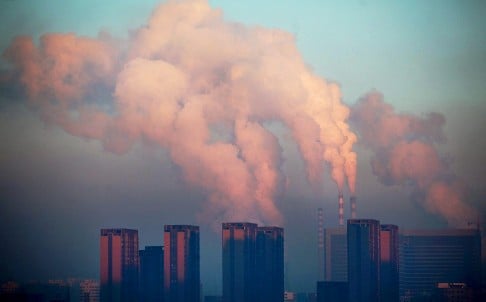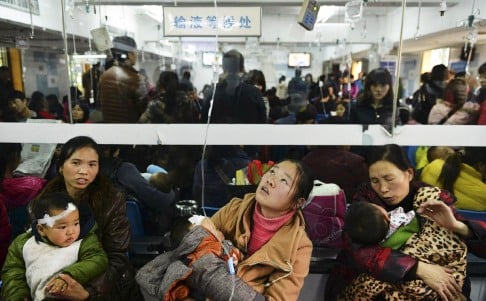- Joined
- Oct 30, 2014
- Messages
- 36,768
- Points
- 113
http://news.yahoo.com/under-blue-skies-beijing-rolls-red-carpet-obama-151756385.html
Now you know why our PAP is so willing to collaborate with Peking! Wan shui!
Welcome to fairytale Beijing.
The sky is blue, the air is clean, the traffic flows. And all because China is hosting the likes of Barack Obama and Vladimir Putin at a summit of the Asia-Pacific Economic Cooperation, Asia’s premier trade forum.
President Xi Jinping, chairing a major international meeting for the first time, has spared no effort to impress his guests, including draconian steps to temporarily curb the capital’s notorious pollution.
Recommended: How much do you know about China? Take our quiz.
The campaign goes well beyond China’s long tradition of hospitality. “Never has so much time, energy, money, and propaganda been expended on an APEC summit,” says Zhang Yunling, a former trade policy adviser to the Chinese government.
Nor is it wasted, in the eyes of the authorities. “They are using this meeting to build China’s image as the leader of Asia,” says Zhang Lifan, a historian and independent commentator. “This is an opportunity to present their status.”
Most APEC host nations organize the annual meetings in existing hotels and conference facilities. China has reportedly spent $6 billion on a purpose-built lakeside campus 40 miles outside Beijing and a new elevated expressway leading to the 595-room hotel, conference hall, and press center.
The government has chased away air pollution in equally dramatic fashion. Only half of Beijing’s cars will be allowed on the roads each day between Nov. 3 and Nov. 12; more than 1,000 heavy industrial plants within a 120-mile radius of Beijing have been ordered to close; all construction sites have been suspended; and residents of Tianjin, a port city 90 miles east of Beijing, will not get any central heating until APEC is over.
All of Beijing’s schools and universities have been shut down for the week of the APEC summit, and all government employees have been given a mini-holiday, so as to reduce congestion in the capital. But that means no passports will be issued, no weddings registered, no taxes paid, in fact no official business done at all. And the partial car ban means that public transport is even more packed than normal.
The police and other security forces, though, are working overtime. Fearing a possible terrorist attack by separatists from the predominantly Muslim province of Xinjiang, the government has stepped up roadblocks and security checks around the capital.
Trying to ensure a trouble-free event in the most pleasant circumstances possible is natural enough in any host government. And “the tradition of caring about ‘face,’ wanting to show our best side, is part of Chinese culture,” says Zhang Lifan.
Other governments might hesitate to inconvenience their citizens as much as Beijing residents are being told to put up with. Not so Beijing.
“Ordinary people are making sacrifices to meet the needs of foreign guests,” says Liu Yuanju, a commentator for “Dajia,” a popular Chinese Web magazine.
They are also making those sacrifices to satisfy the needs of China’s rulers. The APEC summit offers a chance for President Xi “to show his confidence and leadership,” says historian Zhang.
PAINT THE TOWN GREEN
This official mindset is not unfamiliar to Chinese citizens. Beijing officials have been known to send out workers armed with green paint to put a gloss on parched grass ahead of showcase functions.
Mr. Liu recalls how in 1972, when a freak snowstorm took the Chinese government by surprise on the eve of President Richard Nixon’s planned trip to the Great Wall, the authorities mobilized 100,000 people overnight to clear the route from the steps of Mr. Nixon’s guesthouse to the Great Wall, 45 miles away.
Now, as then, Liu says, “everyone is mobilized to meet the needs of a diplomatic event.”
Behind this approach, he says, is the Chinese government’s craving for foreign approval. “That is how they get legitimacy for their achievements,” Liu explains. One day, he hopes, “Chinese people's criticisms will count for more than foreign praise.”
Now you know why our PAP is so willing to collaborate with Peking! Wan shui!



